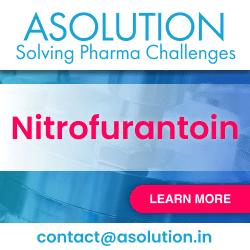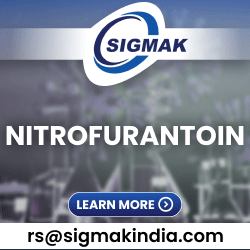GSK, Google form first bioelectronics firm; 11 generic companies benefit from the Teva Allergan deal
This week,
Phispers brings to you the details of the bioelectronics firm formed by GSK and
Google. There is also news on companies like Teva, Takeda, Jinan Jinda and Eli
Lilly, besides two other news snippets pertaining to the FDA -- while the first
one pertains to generic approvals, the other one relates to an additional black
box warning on a few antibiotics. GSK and Google
join hands to form first bioelectronics startupGlaxoSmithKline and Google’s parent company – Alphabet – have joined hands to create a new company that is focused on fighting diseases by targeting electrical signals in the human body. This way, GSK and Alphabet’s life sciences unit – known as Verily Life Sciences – will be jump-starting a new field of medicine known as bioelectronics.Verily Life
Sciences and GSK will together contribute US $ 715.12
million
over seven years to the startup Galvani Bioelectronics. The startup will develop
miniature electronic implants for the treatment of asthma, diabetes and other
chronic conditions. The
implantable devices developed by Galvani, which is owned 55 percent by GSK and
45 percent by Verily, can modify electrical nerve signals. The aim is to
modulate irregular or altered impulses that occur in many illnesses.The
new company
will be based at GSK’s Stevenage research center north of London, with a second research hub in South San Francisco.The announcement comes just weeks after GSK had said it was going to use Apple’s HealthKit to conduct clinical trials.Three years ago, GSK had first unveiled its ambitions in bioelectronics in the journal – Nature. Bioelectronic remedies attach battery-powered implants the size of a grain of rice (or even smaller) to individual nerves to correct faulty electrical signals between the nervous system and the body’s organs.GSK believes altering these nerve signals could open up the airways of asthma patients, reduce inflammation in the gut from Crohn’s disease and treat patients with a range of other chronic ailments such as arthritis. So far, the implants have only been tested on animals but the aim is to produce treatments that will supplement or replace drugs that often come with side-effects.GSK
has been working on bioelectronic medicines since 2012 in a push to develop new
patentable treatments, since its Advair respiratory treatment faces competition
from generic versions. It has invested US $50 million in a venture capital fund
for bioelectronics and provided funding to scientists working in the field. Teva divests 79
products to 11 generic players to close Allergan dealTeva
Pharmaceutical Industries – the world’s largest generics drug company – won a US
anti-trust approval to purchase Allergan's generics
business, after agreeing to divest 79 generic drugs to rival firms. This was arrived
at to settle Federal
Trade Commission (FTC) charges that its proposed US $ 40.5 billion acquisition of Allergan’s generic pharmaceutical business would be anti-competitive. The remedy requires Teva to divest the drug portfolio to 11 firms, and marks the largest drug divestiture order in a FTC pharmaceutical merger case.The Teva-Allergan deal, which was announced in July 2015, solidifies Teva’s position as the world's largest maker of generics while freeing Allergan to focus on branded drugs.The
companies that
have acquired
the divested products are Mayne Pharma
Group, Impax
Laboratories, Dr Reddy’s Laboratories, Sagent
Pharmaceuticals, Cipla Limited, Zydus Worldwide
DMCC, Mikah Pharma, Perrigo Pharma
International, Aurobindo
Pharma USA,
Prasco and 3M Company. Eli Lilly CEO
steps down; company under probe by US Justice Department Eli Lilly CEO John
Lechleiter has stepped down after steering the pharma company through long R&D droughts. The company’s president David Ricks will move up to the top spot. And after a brief spell as executive chairman, Lechleiter will leave the company next spring.Lechleiter
has been the company's CEO since April 1, 2008, and the chairman of its board
of directors since January 1, 2009.The
announcement has come at a time when Eli Lilly has been asked by the
Justice Department to disclose information on relationships with pharmacy benefits
managers (PBMs), the companies that negotiate prices and set reimbursement
conditions.It
has not been clear what exactly the department of justice is looking for. In
the past, drug makers such as Novartis and AstraZeneca have agreed to
pay fines and penalties to settle allegations pertaining to PBMs. FDA continues
to race ahead with generic approvals The
American regulator has reduced its pile of ANDA (abbreviated new drug
applications) by about 500
applications in the first six months of 2016. The FDA has also approved 315 more ANDAs over the same time period and has sent 66 more complete response letters — or rejections — to drug makers.This
news comes after Bloomberg reported
last month that the FDA has become ‘something of a bogeyman’ for India’s stock markets by approving generic drug applications from India at a record place. Similarly, PharmaCompass
had reported last week that Indian
companies have been fixing compliance issues. China’s Jinan Jinda fails another EDQM inspection; compliance troubles in Denmark In
regulatory news from across the world, Jinan Jinda, a Chinese API
manufacturer that had failed an inspection by Italian regulators in June 2015,
had more bad news awaiting it a year on. In
a June 2016
re-inspection, this time by the Spanish Health Authority, the regulator maintained the ‘facilities non-compliance standing’ since two critical observations were made and the corrections from the previous inspection “were found as not having been implemented in a satisfactory way”. And critical deficiencies were found on raw data.In
the June 2015 inspection, the critical observation was related to an unofficial
and non-controlled storage area containing mainly raw materials and finished
products which had been made
inaccessible to inspectors as the door had been removed and replaced with a panel fixed with
screws to the wall.Meanwhile,
the FDA issued an untitled letter (dated July 15, 2016) to Danish allergy
immunotherapy company ALK-Abelló (ALK) over manufacturing and quality control issues at its Horsholm, Denmark facility. The letter comes after a 12-day inspection of the facility in March 2016. During the inspection, the FDA had cited ALK for four “significant deviations” from cGMP requirements. Another black
box warning added to antibiotics like Cipro and LevaquinThe
FDA has upgraded
warnings on
certain antibiotics, such as Johnson & Johnson’s Levaquin, Bayer’s Cipro
extended-release tablets and Merck’s Avelox. The FDA had
added a black box warning in 2008 about the increased risk of tendinitis in
which the tissue connecting muscle to bone becomes inflamed. In
May this year, the FDA had advised restricting the use of fluoroquinolone antibiotic for certain uncomplicated
infections and had warned about the disabling side-effects of the drug.The new warning talks about long-term risks to the drugs’ current black box warning. The agency also advised using the drugs only for serious infections. Manufacturers of fluoroquinolone have faced thousands of lawsuits from patients who claim that their injuries were caused by the drugs. J&J alone faced 3,400 lawsuits over Levaquin’s links to tendon problems and has also settled many of those cases. Takeda to
overhaul R&D, downsize operations in the UKTakeda Pharmaceutical of Japan has
said it plans to build a new pipeline of drugs. It plans to revamp its
research operations at the cost of around US $ 727 million.. The
company also plans to close some of its R&D operations in the UK. Takeda is
beginning the first ‘consultation stage’ of the layoff process in the UK, which hosts a pre-clinical R&D operation in Cambridge as well as a development center headquarter with facilities in the UK, Switzerland and Denmark.Under the revamp, Takeda’s R&D activities will be concentrated in Japan and the US, the 235-year old drug company said in a statement. Takeda plans to now focus on the three therapeutic areas of oncology, gastroenterology and the central nervous system.“We need to first build new capabilities and embrace new ways of working,” Andy Plump, Takeda’s chief medical and scientific officer, said in the statement.
Impressions: 2757
Recently announced regulatory
action against Indian and Chinese companies is creating a significant
imbalance in the global supply chains of APIs. This imbalance is likely to open
opportunities for other companies in Asia, and may also drive manufacturing back
to Europe and the US.Last week, three companies – one in India and two in China – ran into problems with European regulatory agencies due to inspections conducted at their facilities. Data falsification, a problem recurring in Asia for the past few years, raised its ugly head yet again. The three companies that received non-compliance reports were
plagued with problems similar to those seen in the past at the Asian operations
of Ranbaxy,
Wockhardt,
Zhejiang
Hisun, Novacyl
etc. The European
regulatory actionTake the case of Jinan Jinda Pharmaceutical Chemistry, China, where an inspection was conducted on
June 26, 2015, by the Italian Ministry of Health. An unofficial and
non-controlled storage area containing mainly raw materials and finished
products was made inaccessible to the inspectors. Since the door of the area had
been removed and replaced with a panel fixed with screws to the wall, the inspection
team concluded that there was a serious risk of data falsification. At Parabolic Drugs, India, where an inspection was conducted by the Italian Ministry of Health on June 17, 2015, the inspectors found the quality management system to be seriously uncontrolled and deficient in almost all “principles” mentioned in the EU’s Good Manufacturing Practices (EU-GMP) guidelines. Falsification of data and documents along with integrity and security of data in the quality control laboratory were among the observations listed in the non-compliance report.Similarly, at Wuxi Jida Pharmaceuticals, China, inconsistent and conflicting answers were received from the personnel and the management. The fact that answers were modified according to the inspectors’ requests and that documentation was shown in an ambiguous way led the Italian inspection team to conclude that the company did not comply with the requirements of EU-GMP.The Certificates of Suitability (CEP/COS), given to certify
that the material complies with the requirements laid down in the relevant
monograph of the European Pharmacopoeia, of these three companies were
suspended. A sense of urgency in
EuropeThe time between the Italian inspections and issuance of the
non-compliance report was less than six weeks. This turnaround is quite
remarkable, considering this is peak holiday season in Europe.Last week also witnessed the US FDA, which has historically
been more active compared to the Europeans, issue a warning
letter to Mahendra
Chemicals in India. During a May 2014 inspection, the US FDA inspectors found employees had completed batch
production record entries days after operations had ended. Moreover, they
released lots before proper approvals, and failed to maintain original
manufacturing data for critical steps. Investigators found backdated batch
production records, signed by the Technical Director, who stated he was not in
the facility on the dates when the records were signed. Even though such
glaring concerns related to data integrity were observed, it still took the US
FDA over a year to issue the warning letter; substantially longer than the six
weeks taken by the European regulatory agencies.However, the speed of the issuance by the Italian Ministry
of Health is not drastically different to the Romanian Health Authority, which
issued a non-compliance
report (NCR) to Zhuhai United, China, in June 2015, for an inspection held
in April. Similarly, the Slovenian Health Authority issued an NCR
to Polydrug Laboratories, India, within three months (the inspection was held
in March this year). In the case of Huzhou
Sunflower, China, the French health agency issued an NCR in March, while
the inspection was held in January this year.The recent EU ban on 700 generic medicines due to
manipulation of clinical trials at Indian GVK Biosciences, is yet another case
which highlights the recent action taken by the European regulatory agencies
(read our previous analysis: Will
data integrity concerns on clinical trials done at GVK Biosciences go beyond
Europe?). New market opportunities
in an imbalanced supply chainThe outcome of these inspections create market opportunities for other competing firms. Jinan Jinda’s inspection was focused on an antibiotic used to treat urinary tract infections – known as Nitrofurantoin.
Post the inspection, Jinan is prohibited from supplying Nitrofurantoin
to the European market.As per the PharmaCompass database, Jinan Jinda is one of the three holders of a COS/CEP for Nitrofurantoin and the recommended suspension of their COS/CEP is an opportunity for the other two COS/CEP holders – global generic major Mylan Laboratories
and Indian company, Unimark
Remedies. In addition to these companies, FIS
Fabbrica Italaina Sintetici and Cambrex
Profarmaco, both based in Italy, are also active in the business of
supplying this API. Unlike Jinan Jinda, which only had one CEP filing, India’s Parabolic Drugs
produces multiple antibiotics, although not at the scale of global majors Sandoz, Fresenius
Kabi and DSM.
A suspension of 11 active CEPs, which had been granted to Parabolic, does seem
to indicate an apparent shift in the supply chain of APIs. However, the suspension of Parabolic’s CEPs means that for antibiotics like Pivampicillin, there are no suppliers left who have a valid CEP. Parabolic’s inability to supply the market with products like Dicloxacillin
Sodium, for which the inspection was conducted, is an opportunity for Sandoz, Aurobindo
Pharma and the Italian operations of Fresenius
Kabi – all of whom are integrated manufacturers and are not specialized API suppliers. For another antibiotic Bacampicillin, following the suspension of Parabolic Drugs, Fresenius Kabi’s Italian operations will be the only supplier left with a valid CEP.With Sandoz’s recent announcement of their plant shut down in India and the fate of Ranbaxy’s manufacturing operations being uncertain, under the new management of Sun
Pharma, the supply options for CEP grade Cefopodoxime
Proxetil get reduced substantially and are now dependent on just two plants
-- Hanmi
Fine Chemical in Korea and Sandoz’s Austrian operations. The situation thus created is not drastically different to
the one resulting from the inspection
failure of North China Pharmaceutical Group Semisyntech, which left Sandoz
as the only manufacturer of Benzylpenicillin
Procaine (this was before Novartis announced the shutdown of their
Frankfurt facility).PharmaCompass has summarized a list of all CEPs for the 12
products (11 of Parabolic and 1 of Jinan Jinda), in case our readers want to assess
the status of their overall supply chain in view of the recent inspection
outcomes (please click here to send
us a request). Our viewWhile the US FDA inspectors have historically been more active,
the recent months have shown a sense of urgency on the European side as well. The era where companies were securing their supply of APIs
by looking for low-cost players in Asia appears to be waning away.In our view, inspection outcomes like these may well drive
manufacturing back to Europe and other countries where the cost of
manufacturing has historically been high. The devaluation of the Euro, coupled
with the speed with which regulatory action has been taken on these Indian and
Chinese firms, seem to suggest that trade protection conversations may well get
started in the not-so-distant future.
Impressions: 3586















